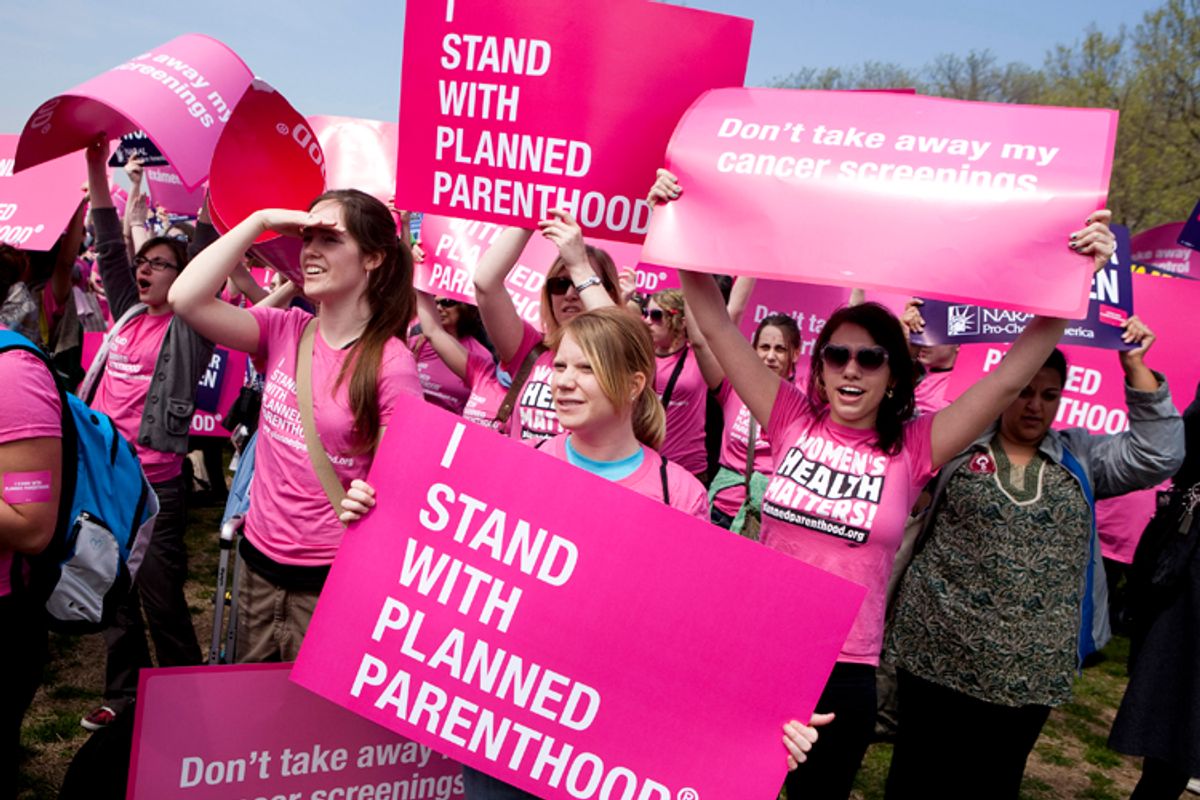With a new campaign released today, Planned Parenthood has quietly signaled a move away from the "pro-choice" label.
The women's health provider has long been the target of conservative chest-pounding (and budget slashing), and their latest video "Not In Her Shoes" is their first effort to get past the divisive rhetoric:
Most things in life aren’t simple. And that includes abortion.
It’s personal. It can be complicated. And for many people, it’s not a black and white issue.
So why do people try to label it like it is? Pro-choice? Pro-life? The truth is these labels limit the conversation and simply don’t reflect how people actually feel about abortion.
A majority of Americans believe abortion should remain safe and legal. Many just don’t use the words pro-choice. They don’t necessarily identify as pro-life either. Truth is, they just don’t want to be labeled.
What they want is for a woman to have access to safe and legal abortion, if and when she needs it.
The public response to the decision has been mixed, but surprisingly unheated. Slate's Amanda Marcotte understands why the change is necessary, but is dubious about its potential for success:
I can see why Planned Parenthood might want to shed the term in order to get these conflicted people to realize they are on Planned Parenthood's side. But I'm afraid that the desire to go label-free is doomed to fail. I'm not going to start writing pieces where I describe pro-choice organizations as pro-whatever-the-situation-is organizations or help-people-understand-the-circumstances organizations. Labels are simply part of language, and shorthand rhetoric is part of the political debate. As long as abortion is a contested issue, there's no opting out of that.
And she might be right. Planned Parenthood is trying to improve their brand with the people who aren't actively engaged on the issue, but who might still support abortion rights. And that's smart. Many of them go on to elect men and women to office who make decisions about funding and the local laws that dictate and restrict access. That's big.
And yet.
The idea that abortion is a "personal" issue is true -- to a point. It's personal for the 1.3 million women who have abortions each year. It's personal for the partners who make those choices with them.
But it is also a deeply political issue, with very real consequences. During the vice presidential debates, Candy Crowley didn't ask the candidates to talk "personally" about war with Iran. But that is how she framed her question about about abortion rights. Why? Both are issues of moral and political relevance. All too often, too much soft talk on reproductive choice manages to sidestep the main point.
And that's that abortion should be safe and legal in the United States. And a complicated network of laws are slowly scaling back or eliminating access for millions of women. That's what's at stake. That's what it means to be pro-choice.
It's possible that Planned Parenthood's latest move will help people come together. Maybe the video will work and the national conversation on abortion will become a little more civilized. A little less harsh. A little slower to judge. Maybe people can "Have a different conversation. A conversation that doesn’t divide you, but is based on mutual respect and empathy."
Here's hoping.



Shares